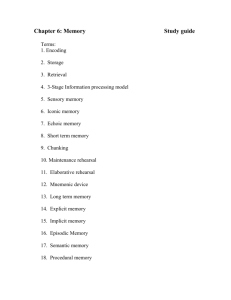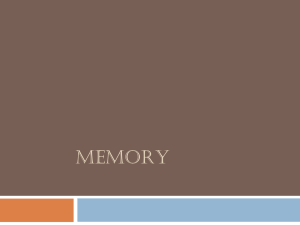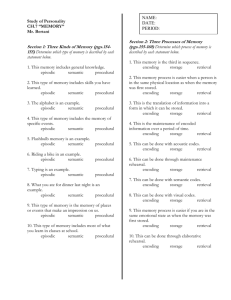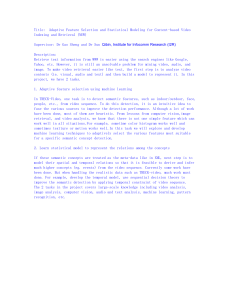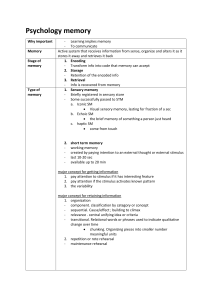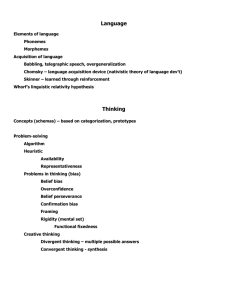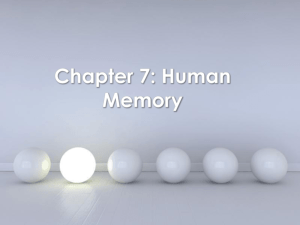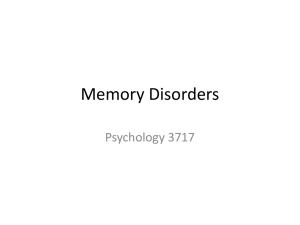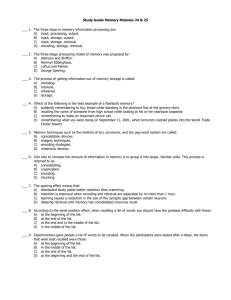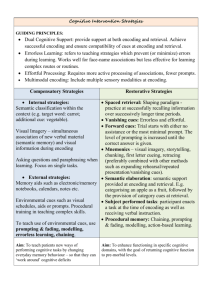Memory Practice Test Questions
advertisement
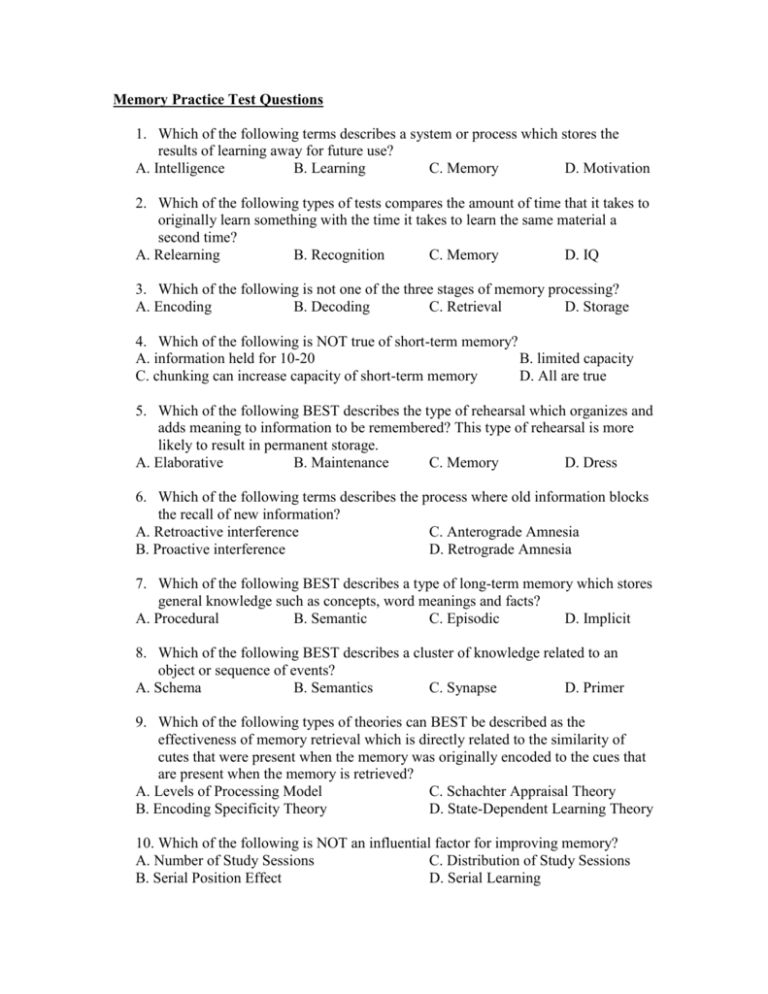
Memory Practice Test Questions 1. Which of the following terms describes a system or process which stores the results of learning away for future use? A. Intelligence B. Learning C. Memory D. Motivation 2. Which of the following types of tests compares the amount of time that it takes to originally learn something with the time it takes to learn the same material a second time? A. Relearning B. Recognition C. Memory D. IQ 3. Which of the following is not one of the three stages of memory processing? A. Encoding B. Decoding C. Retrieval D. Storage 4. Which of the following is NOT true of short-term memory? A. information held for 10-20 B. limited capacity C. chunking can increase capacity of short-term memory D. All are true 5. Which of the following BEST describes the type of rehearsal which organizes and adds meaning to information to be remembered? This type of rehearsal is more likely to result in permanent storage. A. Elaborative B. Maintenance C. Memory D. Dress 6. Which of the following terms describes the process where old information blocks the recall of new information? A. Retroactive interference C. Anterograde Amnesia B. Proactive interference D. Retrograde Amnesia 7. Which of the following BEST describes a type of long-term memory which stores general knowledge such as concepts, word meanings and facts? A. Procedural B. Semantic C. Episodic D. Implicit 8. Which of the following BEST describes a cluster of knowledge related to an object or sequence of events? A. Schema B. Semantics C. Synapse D. Primer 9. Which of the following types of theories can BEST be described as the effectiveness of memory retrieval which is directly related to the similarity of cutes that were present when the memory was originally encoded to the cues that are present when the memory is retrieved? A. Levels of Processing Model C. Schachter Appraisal Theory B. Encoding Specificity Theory D. State-Dependent Learning Theory 10. Which of the following is NOT an influential factor for improving memory? A. Number of Study Sessions C. Distribution of Study Sessions B. Serial Position Effect D. Serial Learning 11. Which of the following types of processing strategies refers to the visualization of familiar locations as cues for the retrieval of information associated with them? A. Mnemonic Devices B. Imagery C. Method of Loci D. Acronym 12. Memory loss following a strong trauma is called ___________. A. Amnesia B. Dementia C. Alzheimer’s D. PTSD 13. Which of the following is the first stage of the memory information processing system where sensory input is transformed or coded into neural impulses for further processing or stored for later use? A. Retrieval B. Priming C. Encoding D. Storage 14. The condition of being almost, but not quite, able to remember something is called ____________. A. Tip of the tongue phenomenon C. Semantic Memory B. Semantic network D. State dependent learning Theory 15. The 1995 Oklahoma City Bombing, 9/11 and the Columbine Shootings would be examples of which type of memory? A. Episodic B. Procedural C. Semantic D. Implicit
